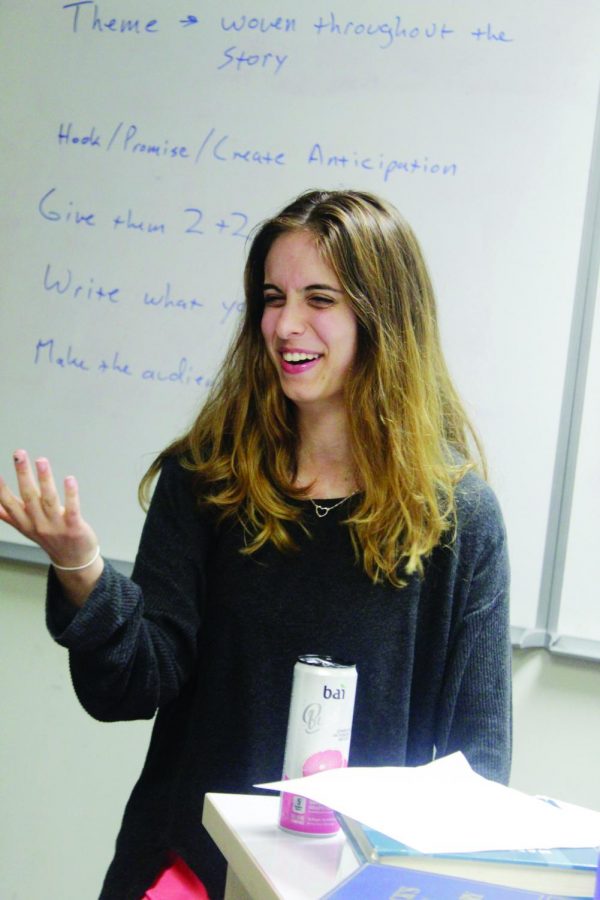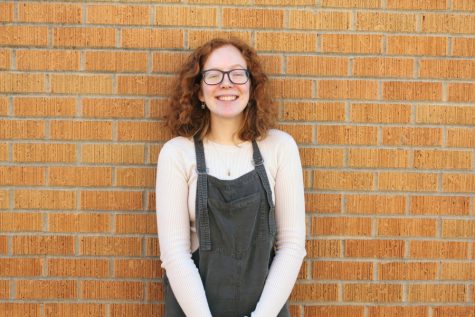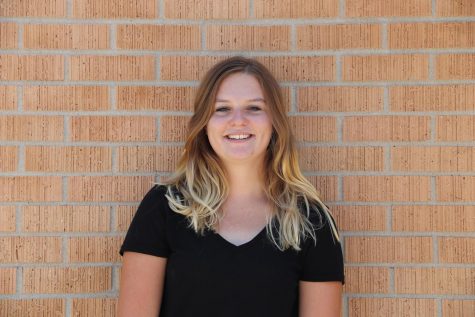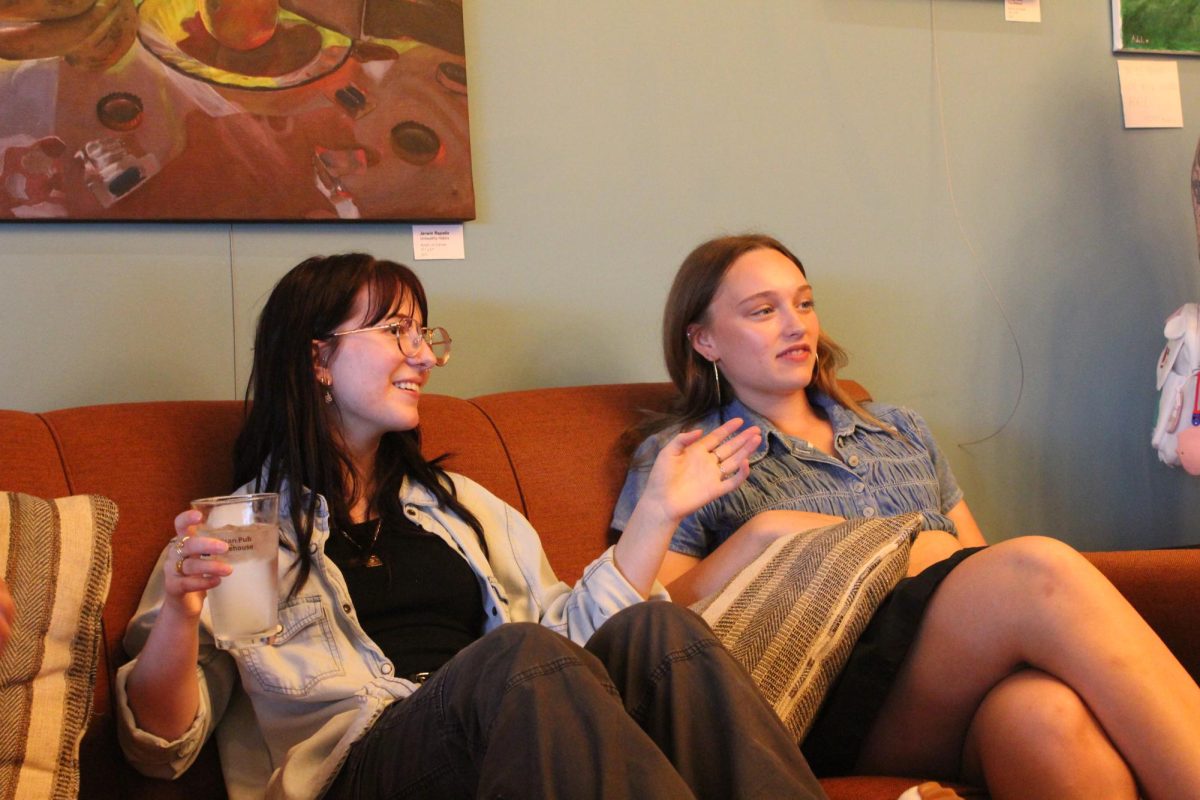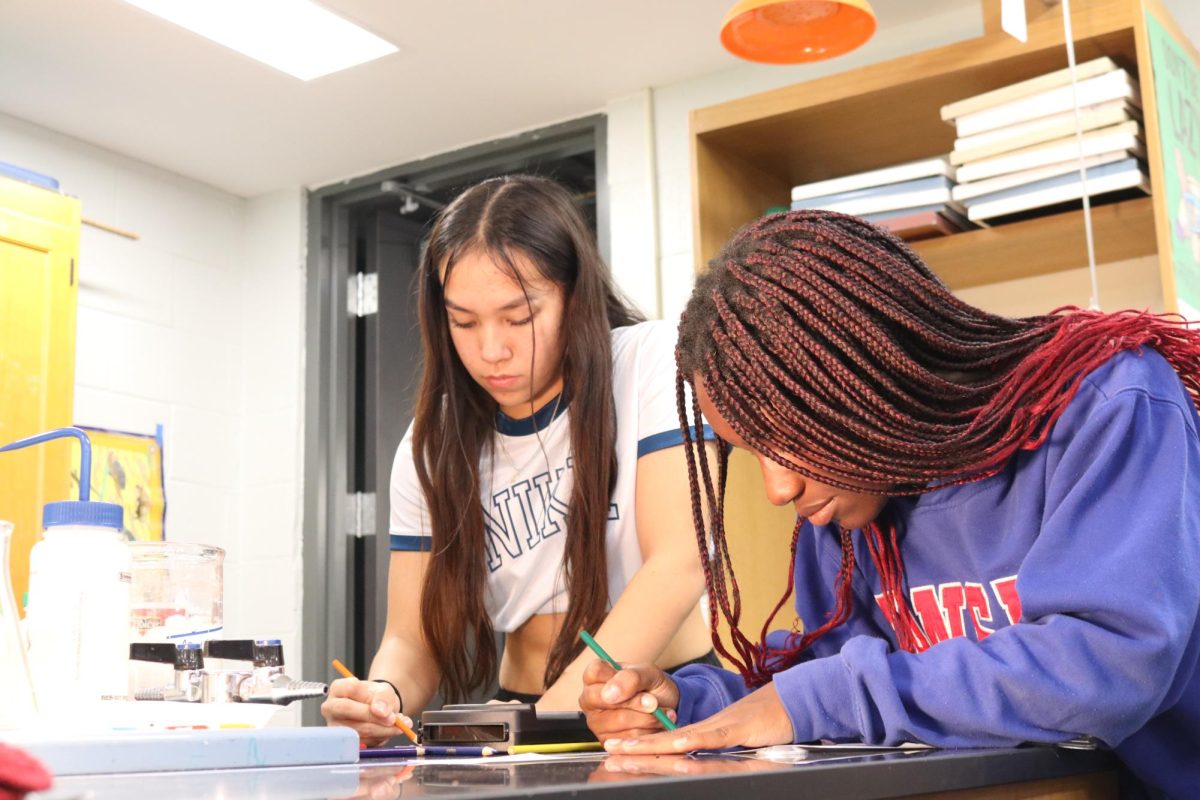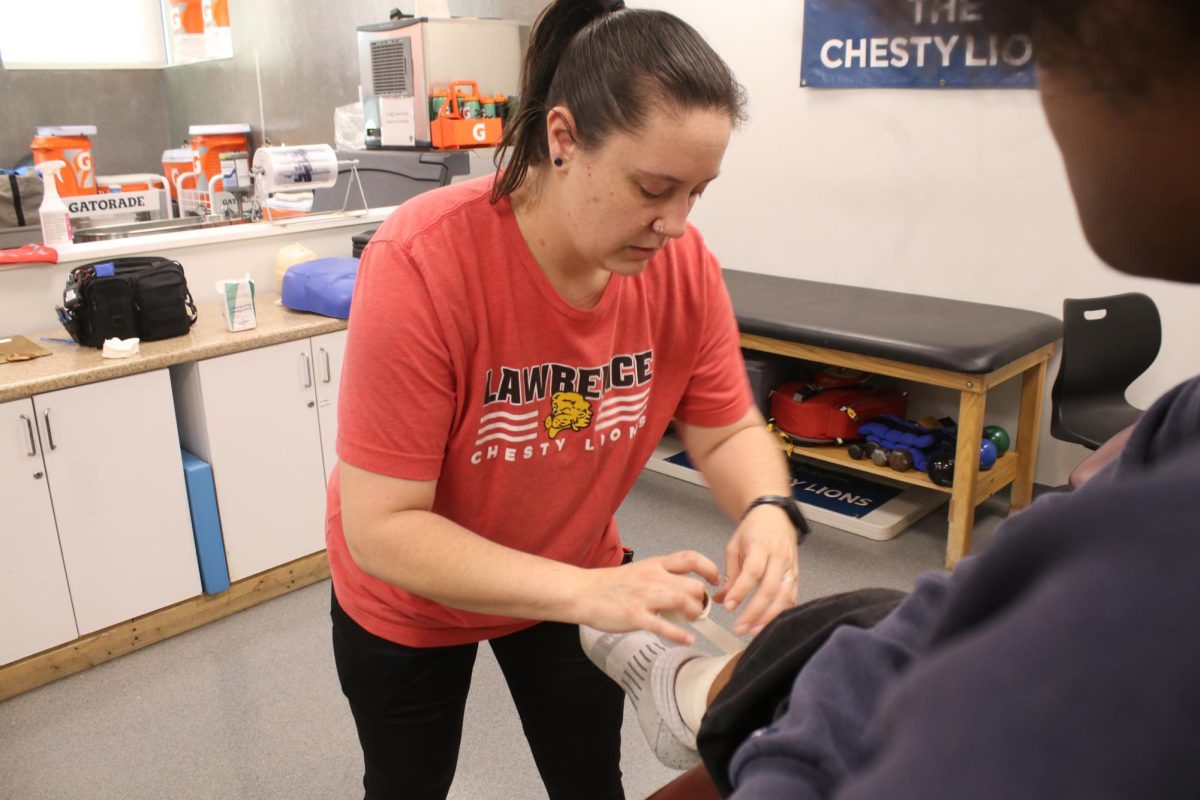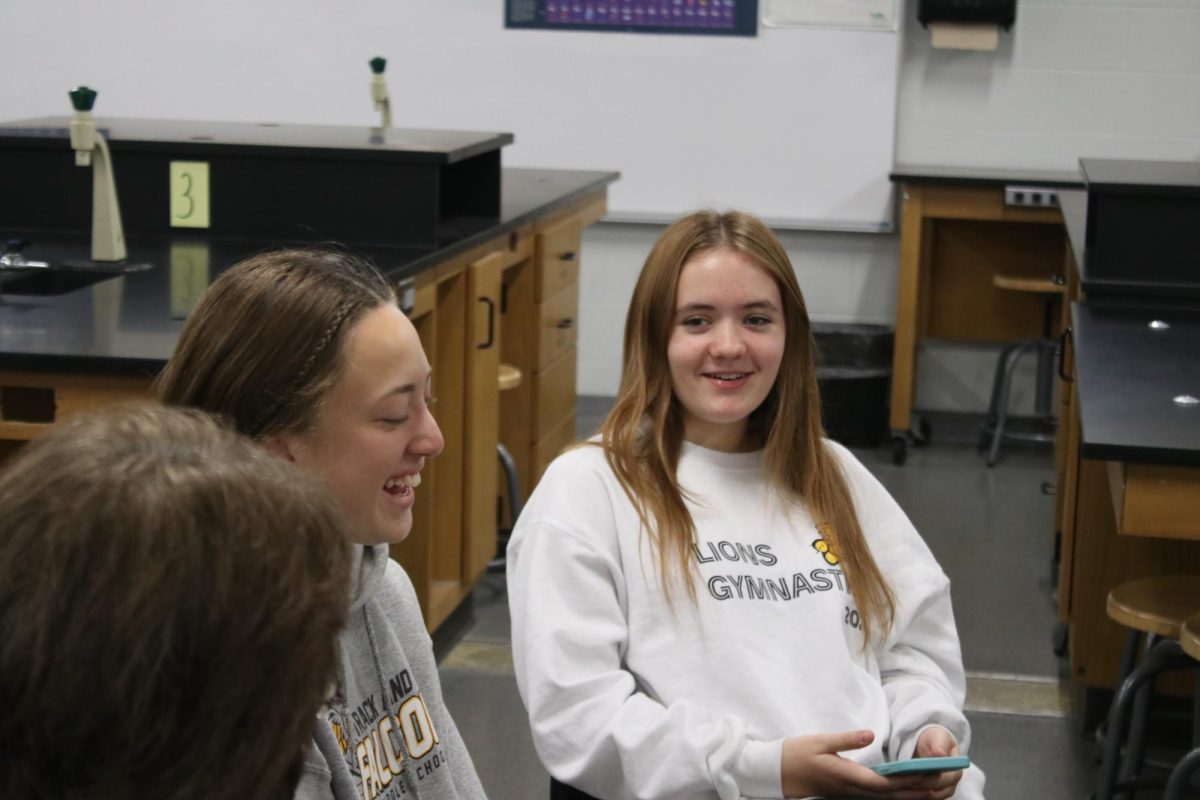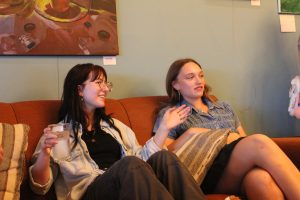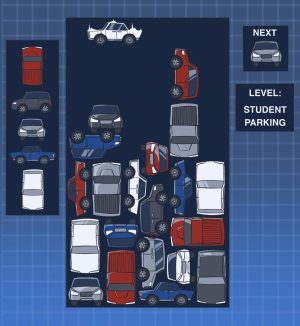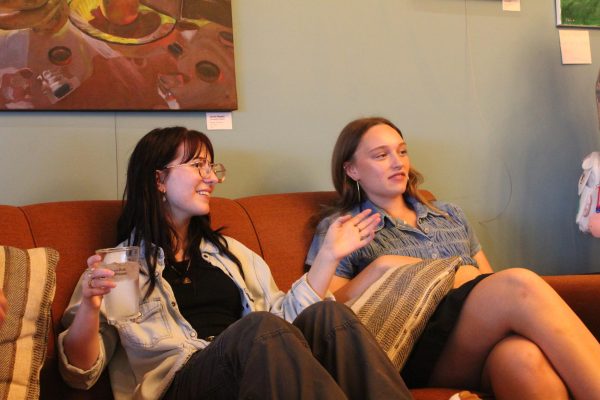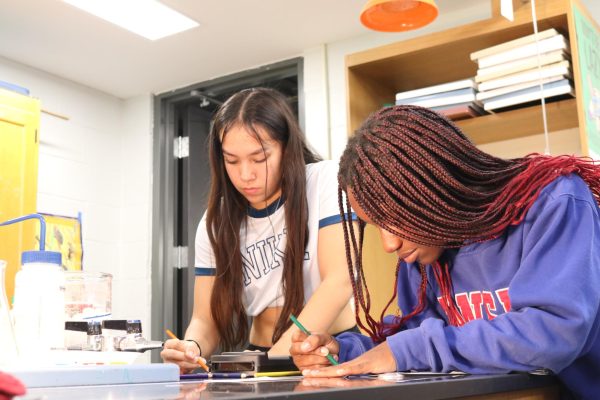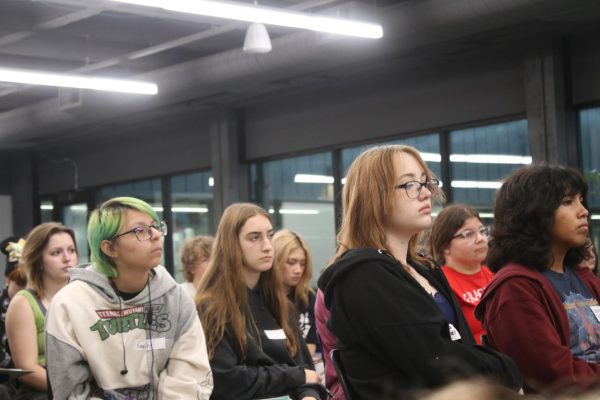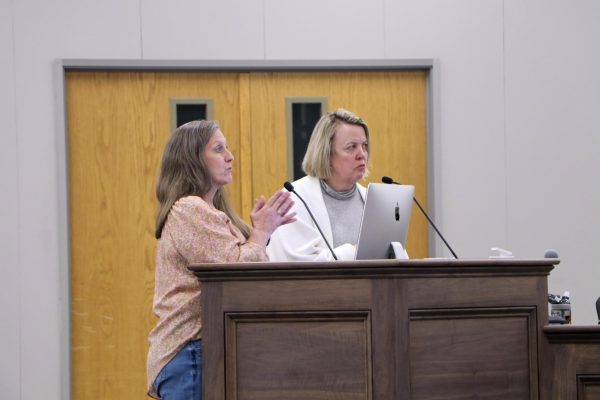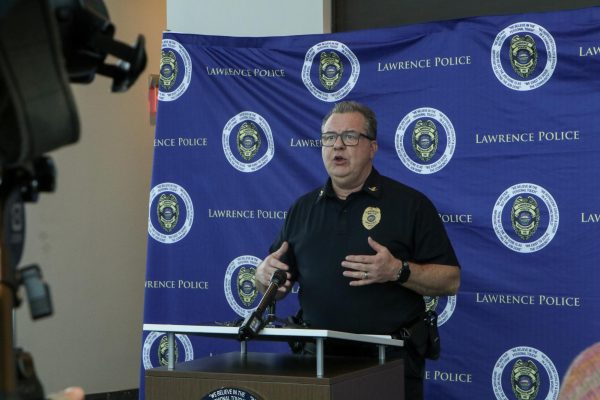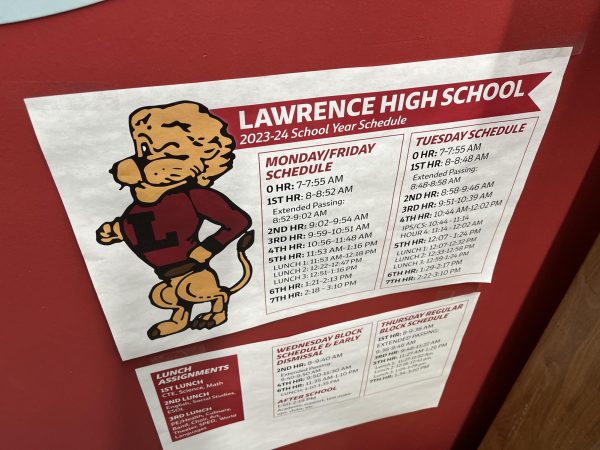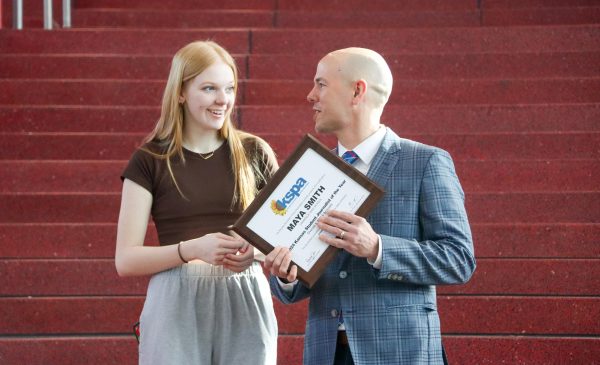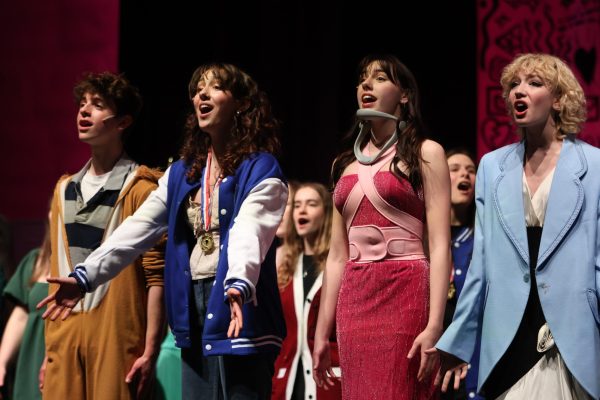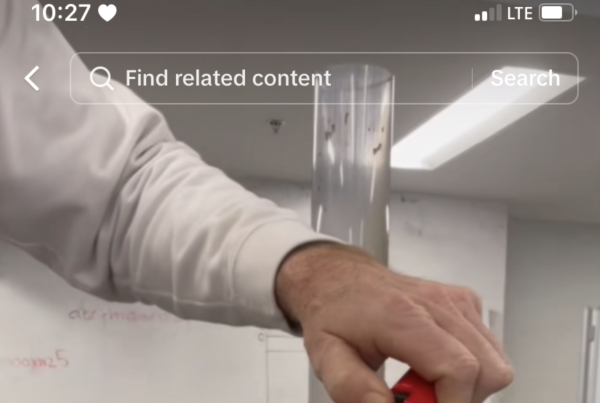Debate gets personal over immigration issues
Immigration debate topic holds personal connection for students who are the children of immigrants
Senior Vera Petrovic has fun while working hard at a debate work night on Oct. 3. Like many students in debate, Petrovic has a personal connection to the topic of immigration. Her parents are from Serbia.
October 24, 2018
Throughout the nation’s history of debate topics, none have hit as close to home for Lawrence High students as immigration has.
The year before selection, a committee of 50-60 people with debate knowledge meet in October to propose topics and narrow them down to a list of five, which are then voted on nationwide. After each state submits a vote, the final topic is announced the February before the school year for which the topic is applicable. LHS students have known immigration would be their topic since then, and began preparing to debate it after the national tournament concluded.
Debate coach Jeff Plinksy said this is the most engaged he’s seen his students in a while.
“It’s because kids live this topic, particularly here on the Lawrence squad,” he said. “Everybody on my squad knows somebody who either is an immigrant or whose parents are….Our students have much more buy-in.”
Senior Rachel Nikolov, whose parents immigrated to the United States from Bulgaria, is a student who buys in. She and her partner’s case involves issuing more student visas, and they have won all but one of the rounds they’ve competed in so far.
“When you’re passionate about it, I think it makes your work better,” she said. “Just the way you present everything is so much better when you believe in what you’re saying.”
Senior Vanya Racy has a good track record as well, despite his personal aversion to decreased restrictions on immigration.
“My view [that I take in debate tournaments] is that we should allow sanctuary cities to thrive because they actually benefit human rights and stop incoming civil war in this country,” he said. “I personally don’t believe in it, but it’s a very persuasive argument for a lot of judges.”
Racy’s mother emigrated from Ukraine.
“It makes me more open to ideas [but] when it comes down to it, I see things as an American, not as a Ukrainian,” he said.
Plinsky said the fact that students have differing opinions drives engagement and makes for meaningful discussion.
“Students are still trying to grapple with how immigration has played a role in this nation’s history versus what impact it might have today versus these very real human beings,” he said. “And it has caused a great number of conversations between people that thought they understood where they stood. As we dig into it a little deeper, the issue is not nearly as black and white as perhaps some of our political leaders would like to make it, and I think that’s true on both sides.”
Although students have allowed their backgrounds to inform their arguments, it’s always about advancing to the next round.
“I think it’s better to debate the facts,” Nikolov said.



